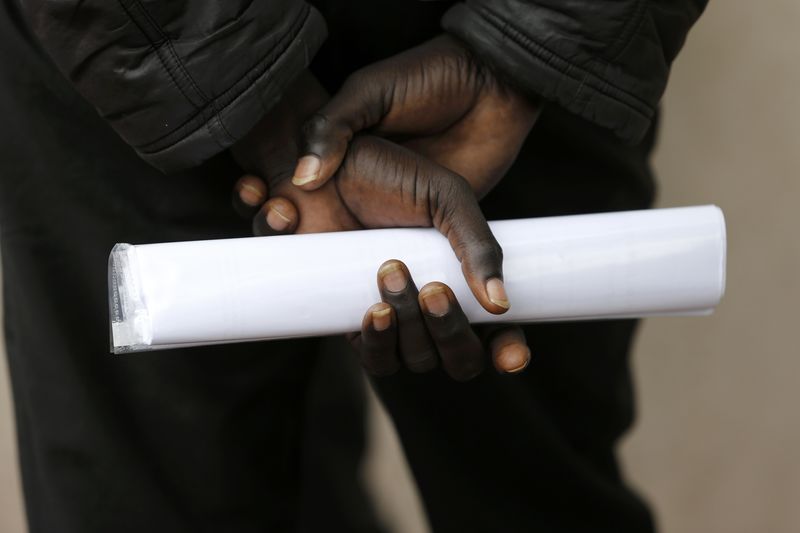By Johnny Cotton
CALAIS, France (Reuters) - Britain will contribute 10 million euros ($11.2 million) to increased French humanitarian assistance and a fast-track asylum process for thousands of migrants camped in Calais in the hope of crossing the Channel, both countries said on Thursday.
The measures, announced by British Home Secretary Theresa May and her French counterpart Bernard Cazeneuve during a joint visit to the northern French port city, are accompanied by tighter security around the port and Channel Tunnel and combined police operations against people smugglers.
"Our joint approach rests on securing the border, identifying and safeguarding the vulnerable, preserving access to asylum for those who need it and giving no quarter to those who have no right to be here or who break the law," the ministers said in a statement.
For Britain and France, Calais is the focus of a wider migration crisis fuelled by conflict, persecution and poverty driving hundreds of thousands to flee Syria, Libya, Sudan and other Middle Eastern and African states.
Tens of thousands of migrants are arriving in Italy and Greece each week, and Germany expects asylum claims to quadruple to a record 800,000 this year.
About 3,000 migrants live in makeshift encampments in Calais, with many trying each night to jump onto trucks or trains or even walk the 31-mile (50-km) undersea tunnel to Britain. Some have been killed in the attempt.
Under the plans outlined on Thursday, London and Paris will contribute police resources to a Calais command centre established to "disrupt organised criminals who attempt to smuggle migrants into northern France and across the Channel".
Improved fencing, CCTV and other security equipment is being installed to protect the tunnel, with 10 million euros of British funding. Operator Eurotunnel (PA:GETP) will get financial support to deploy more security guards.
London is to contribute another 5 million euros in each of the next two years to the bolstered humanitarian effort, including protected accommodation for women, children, victims of trafficking and other vulnerable people.
That will be underpinned by a reinforced fast-track asylum process to distinguish between "people migrating for economic reasons and genuine victims of persecution", the ministers said - with more resources used to "encourage migrants to take up voluntary returns packages".
The UN High Commissioner for Refugees, Antonio Guterres, said he welcomed "in particular the humanitarian and protection elements of the plan".
He added: "To be effective in cracking down on smugglers and traffickers, we must increase the number of legal avenues for people in need of protection to come to Europe."
The growing refugee crisis will also feature in talks between French President Francois Hollande and German Chancellor Angela Merkel on Monday, as southern European states bearing the brunt of the influx press for a concerted EU-wide response.
"This is an absolute human tragedy, with people who are dying and people who are in terrible situations," French Foreign Minister Laurent Fabius said earlier this week.
France wants other European states to speed up the treatment of asylum claims with processing centres at the main entry points, Fabius said last week.
But humanitarian workers in Calais say the French asylum process is still far too slow, exacerbating the buildup of waiting migrants.
"The main problem here is the time it takes for a response," said Francois Guennoc of the French NGO Auberge des Migrants.
An asylum seeker arriving today would not get a first appointment before December, Guennoc said. "It's the longest it has ever been."

($1 = 0.8955 euros)